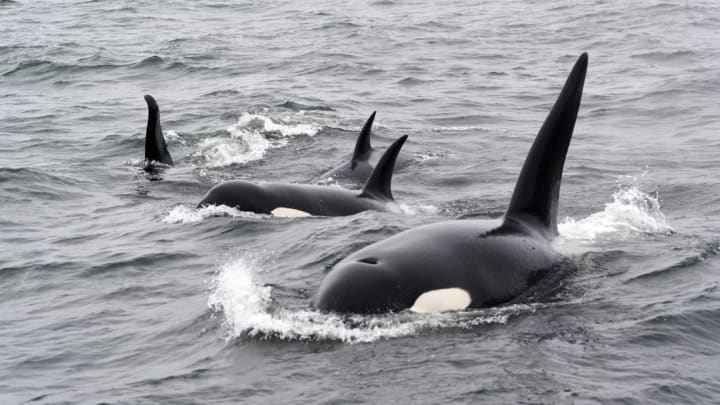Weighing up to 200 tons and stretching as long as 100 feet, blue whales are by far the largest animals on Earth. But these titans of the sea don't sit comfortably atop the food chain. Orcas have been known to occasionally stalk and attack blue whales. Now, for the first time, scientists have recorded a pod of orcas successfully bringing down their giant prey, CNN reports.
A group of researchers witnessed the killing in March 2019, and they published their findings in the journal Marine Mammal Science in January 2022. The hunt was underway when the scientists came upon the scene in Bremer Bay in Western Australia. Twelve to 14 orcas were attacking the adult whale, and they had already torn away parts of its snout and dorsal fin when the researchers arrived.
The blue whale fought back by thrashing its massive tail, but within an hour, it had succumbed to its attackers. More orcas arrived following the successful hunt, with as many as 50 feeding on the carcass at one point. You can watch the saga play out in the video below.
The report also details the killings of two blue whale calves in the same area: one a few weeks after the first incident in 2019 and the other in 2021. At least 16 of the orcas the scientists observed were present for all three hunts. Prior to their study, there was no record of orcas killing blue whales—mature or juvenile.
Killer whales typically prey on fish, squids, and other toothed whales, but as the new research shows, they have their pick of marine delicacies to choose from. The whales have even been observed attacking great white sharks and feasting on their organs, solidifying their status as the apex predators of the ocean.
One trait that makes orcas so formidable is their complex social skills. Hunting in groups is what allows them to take down prey many times their size. Here are more fascinating facts about whales you should know.
